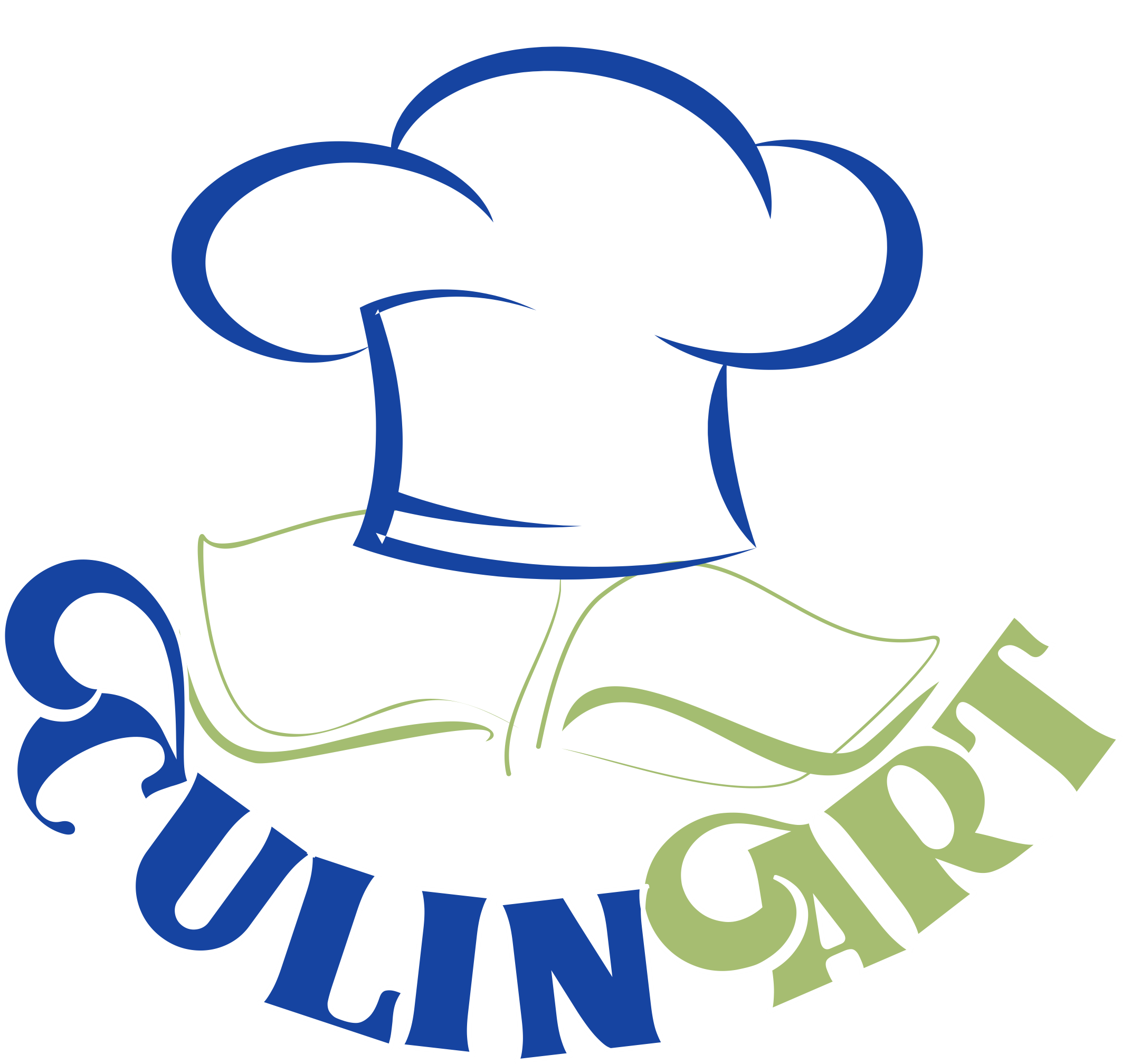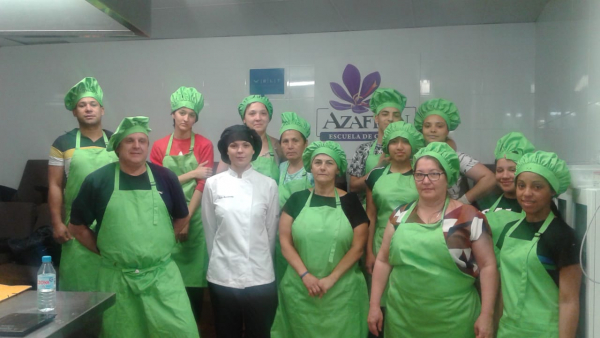1. So, Maite, how did you become a cook/chef?
The kitchen has always been as an attraction for me since I was very little. In my home, without being a professional chef, my mother has always cooked in an exceptional way, for me she will always be the best cook in the world! She always gave much importance to the quality of the products, the healthy food being her aim and of course, she has always cooked in a brilliant way. This is how I developed curiosity and passion for cooking and decided to dedicate myself professionally to it.
2. How much time did you spent in learning/WBL and/or internship?
I studied the Higher Level of Restoration Training Cycle in Zaragoza-Spain, and when I finished it, I began to feel attracted to teaching since I had a great teacher in the cooking school and was fascinated by the way he taught and the knowledge he had on every dish and the various manners of cooking different products. Although I did not set a time limit for my practical training, I thought I should spend at least ten years working in different “kitchens” in order to gain experience. After ten years acquiring skills and knowledge in the kitchen area, I decided to get the training required in order to teach cooking. I studied English at the Official School of Languages to gain access to the Diploma of University Extension in Pedagogical and Didactic Training for Technical Professors of Vocational Training, a one year training that enables to work as a teacher.
3. Was your training adapted to what was expected from you in the kitchen?
As I said before, I was lucky to have a great cooking teacher, Luis Berzosa, and when one receives training in a competent and motivating training establishment, it greatly facilitates the integration in the workplace. Although I had already been working for 4 years in the hospitality sector, after finishing my studies at the Cooking School I was able to adapt much better thanks to the training I received.
4. Do you think that the training offer in general is adapted to the needs of the culinary arts sector?
One of the reasons I decided to get formed as a teacher in cooking is the gap I found in some trainings between the needs of the restoration sector and the training imparted. Moreover, the training I had was mostly school attending (face-to-face classes) and after finishing the theoretic classes I had to do an internship. I think that the DUAL system would be better in order to better adapt to the needs of the restoration sector since the theoretical classes should be followed by practical lessons right away in a real-life kitchen in order to better apply the theoretic concepts. Thus, the theory imparted can have a real application and will better be integrated by the student.
But I think that the figure of the teacher, his knowledge and teaching skills are the most important and will have a serious impact on the student’s motivation and learning results obtained once the training process is finished.
5. What should be the most important skills, knowledge and attitudes a chef should have?
First of all, I think that in order to be a chef, the person should have a real passion for cooking. It is known to be a very sacrificial work: it requires a great effort both physical and mental, long hours of work and a lot of dedication, being ready to give up assisting to celebrations or personal events since when everyone else is enjoying a good meal and company of friends, those who dedicate to kitchen cannot go, and sometimes even supposes the loss of personal relationships.
This sacrifice undoubtedly requires mental strength and a strong will. The person who wants to dedicate professionally to the kitchen needs to have initiative, curiosity, a strong sense of order, cleanliness and speed. The chef should be a person who likes to discover new thinks and be in continuous training, because the possibility of varying dishes is infinite, it’s only limited by the chef himself, it depends on how far he wants to go!
6. Do you think that these skills, knowledge and attitudes are covered by the actual national VET offer?
I believe that there are attitudes and knowledge that are covered but the national training in Spain, but some are not, since the professional experience is going to provide us skills that are only possible to get by working in the kitchen. When I finished my studies I spent two years working in different kitchens and after this time I signed a contract as chef that I kept for 8 years. During this time I acquired skills at different levels: dexterity in the execution of kitchen operations, the capacity to resolve problems of various kinds that may arise from management, orders, and personnel, among others. And above all, I learned a lot from all the people with whom I worked. Everyone always brings us something new.
7. What do you think about the Culinart Project?
I think that having a special training for chef will facilitate the training and improve the outcomes of this position. Moreover, those who already know that they want to be chefs and feel they have the skills to do it, may decide early in life to do the special chef training without having to spend years and years gaining experience, performing different tasks in the kitchen but not specially oriented to form him/her as a chef. Instead of adding different trainings and years of experience in different tasks, this project’s training program as chef could prepare chefs with the specific training that will be expected from their special position in the kitchen area. Thus, aiming directly to equip chefs to be chefs can gain time and money and permit having well trained chefs, specialized in their specific area.









